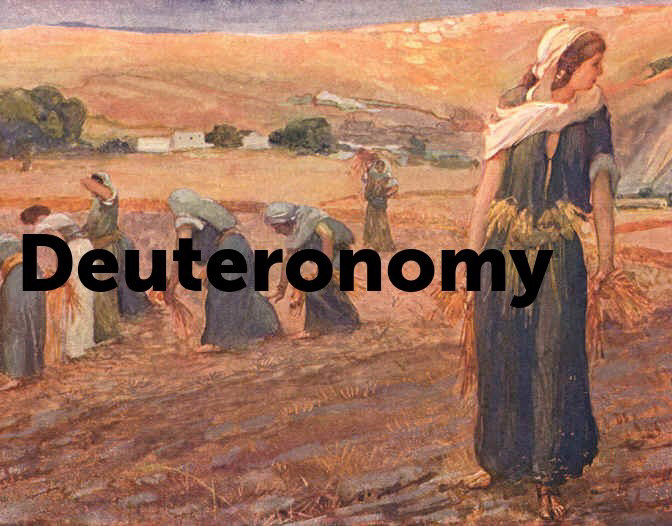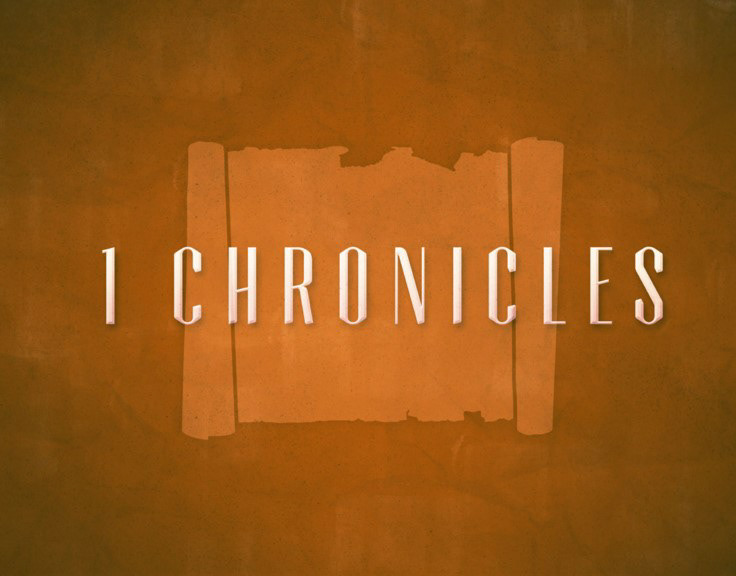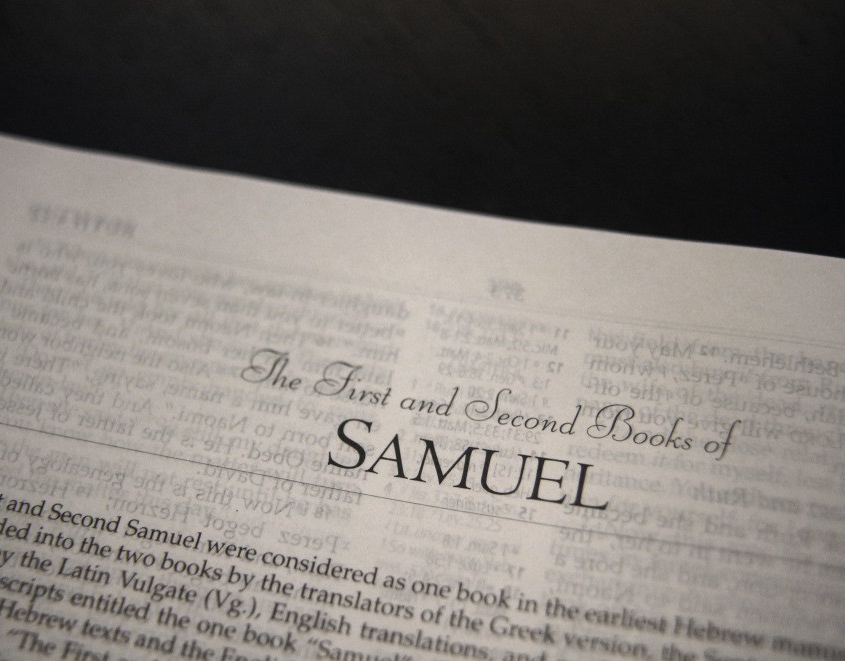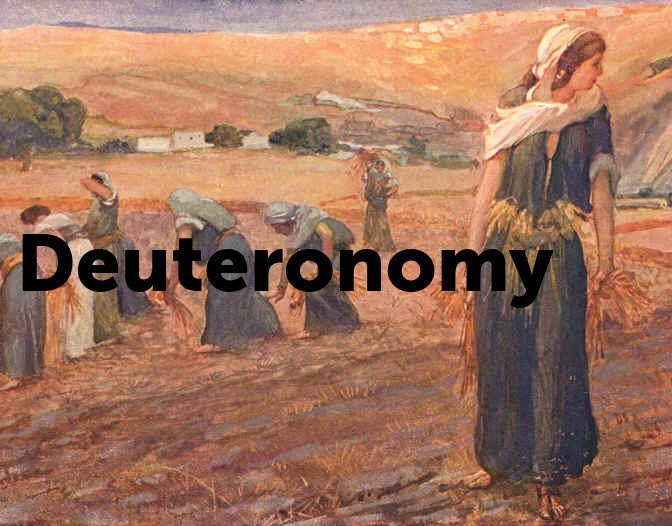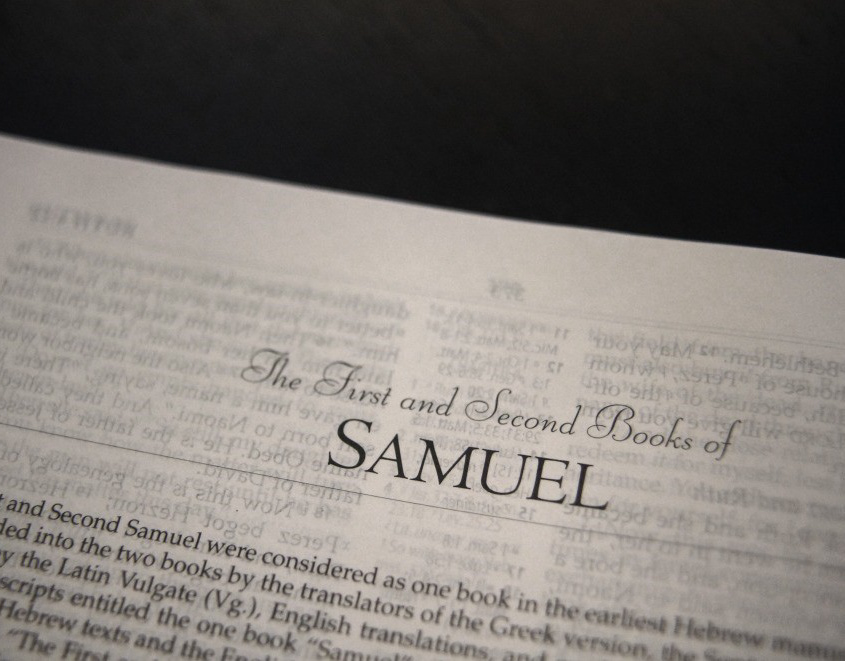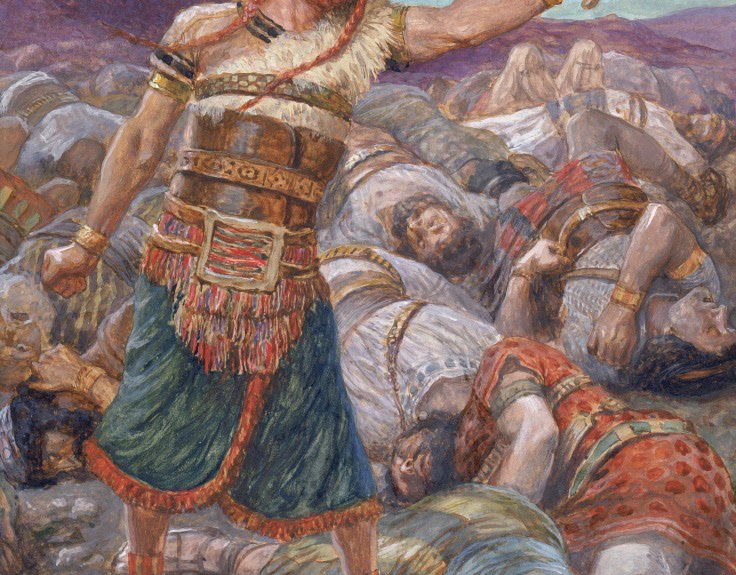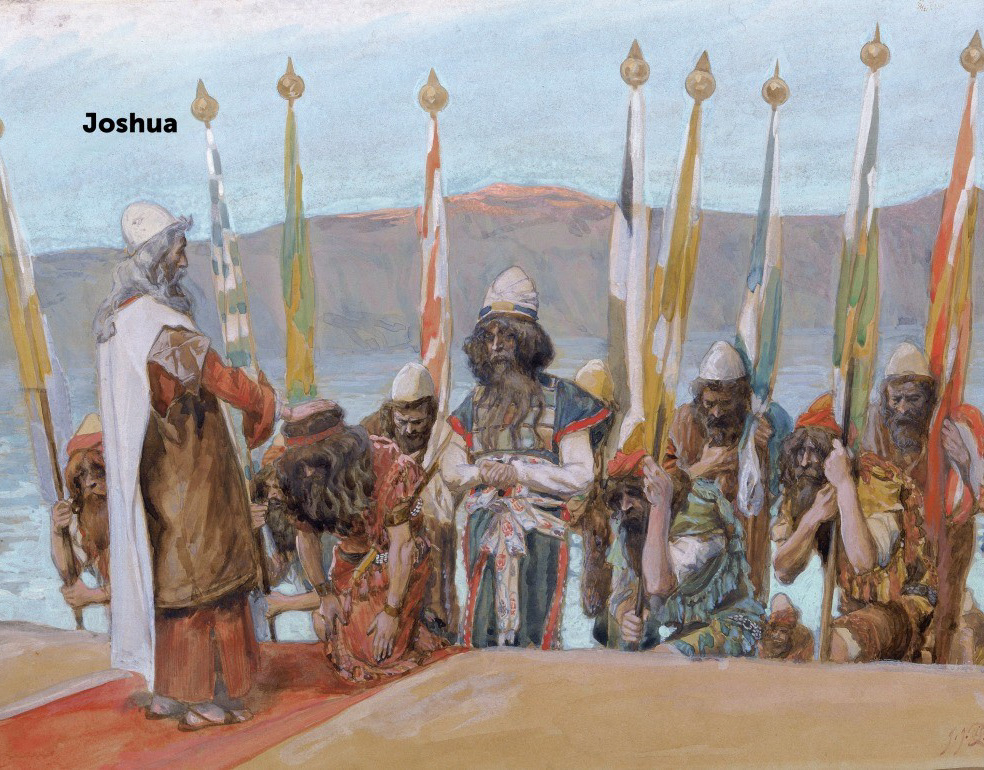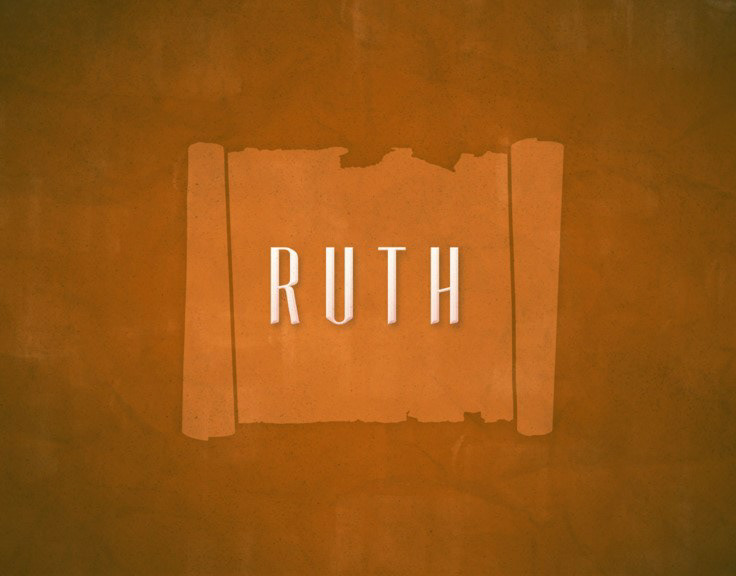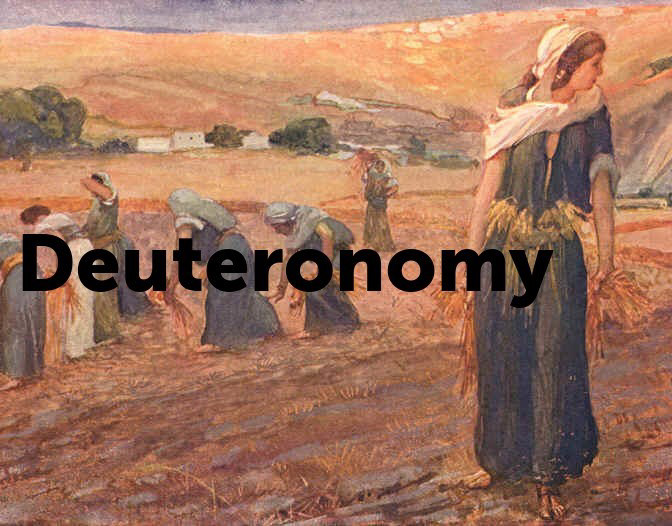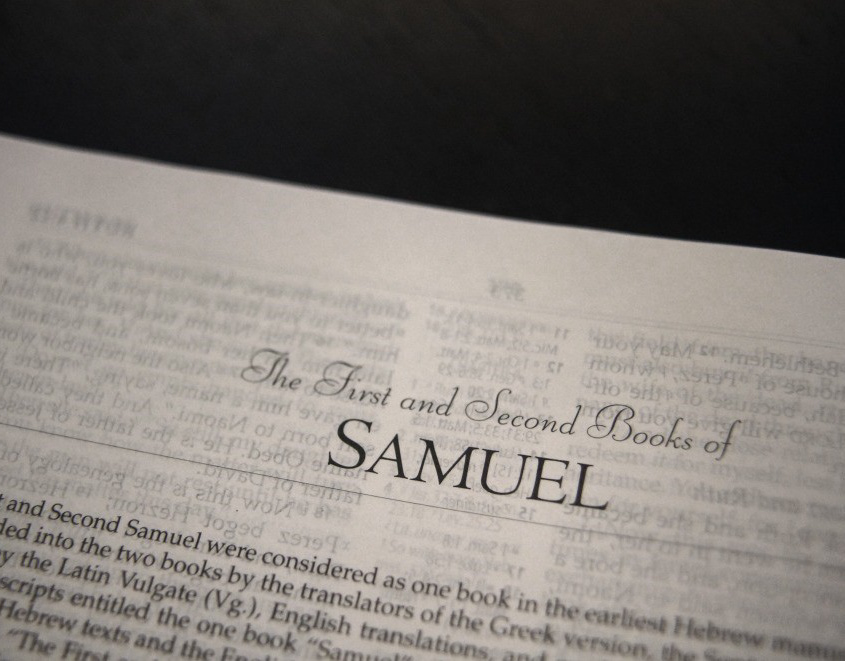Joshua 20-24
The Cities of Refuge
20 Then the Lord said to Joshua, 2 “Say to the people of Israel, ‘Appoint the cities of refuge, of which I spoke to you through Moses, 3 that the manslayer who strikes any person without intent or unknowingly may flee there. They shall be for you a refuge from the avenger of blood. 4 He shall flee to one of these cities and shall stand at the entrance of the gate of the city and explain his case to the elders of that city. Then they shall take him into the city and give him a place, and he shall remain with them. 5 And if the avenger of blood pursues him, they shall not give up the manslayer into his hand, because he struck his neighbor unknowingly, and did not hate him in the past. 6 And he shall remain in that city until he has stood before the congregation for judgment, until the death of him who is high priest at the time. Then the manslayer may return to his own town and his own home, to the town from which he fled.’ ”
7 So they set apart Kedesh in Galilee in the hill country of Naphtali, and Shechem in the hill country of Ephraim, and Kiriath-arba (that is, Hebron) in the hill country of Judah. 8 And beyond the Jordan east of Jericho, they appointed Bezer in the wilderness on the tableland, from the tribe of Reuben, and Ramoth in Gilead, from the tribe of Gad, and Golan in Bashan, from the tribe of Manasseh. 9 These were the cities designated for all the people of Israel and for the stranger sojourning among them, that anyone who killed a person without intent could flee there, so that he might not die by the hand of the avenger of blood, till he stood before the congregation.
Cities and Pasturelands Allotted to Levi
21 Then the heads of the fathers’ houses of the Levites came to Eleazar the priest and to Joshua the son of Nun and to the heads of the fathers’ houses of the tribes of the people of Israel. 2 And they said to them at Shiloh in the land of Canaan, “The Lord commanded through Moses that we be given cities to dwell in, along with their pasturelands for our livestock.” 3 So by command of the Lord the people of Israel gave to the Levites the following cities and pasturelands out of their inheritance.
4 The lot came out for the clans of the Kohathites. So those Levites who were descendants of Aaron the priest received by lot from the tribes of Judah, Simeon, and Benjamin, thirteen cities.
5 And the rest of the Kohathites received by lot from the clans of the tribe of Ephraim, from the tribe of Dan and the half-tribe of Manasseh, ten cities.
6 The Gershonites received by lot from the clans of the tribe of Issachar, from the tribe of Asher, from the tribe of Naphtali, and from the half-tribe of Manasseh in Bashan, thirteen cities.
7 The Merarites according to their clans received from the tribe of Reuben, the tribe of Gad, and the tribe of Zebulun, twelve cities.
8 These cities and their pasturelands the people of Israel gave by lot to the Levites, as the Lord had commanded through Moses.
9 Out of the tribe of the people of Judah and the tribe of the people of Simeon they gave the following cities mentioned by name, 10 which went to the descendants of Aaron, one of the clans of the Kohathites who belonged to the people of Levi; since the lot fell to them first. 11 They gave them Kiriath-arba (Arba being the father of Anak), that is Hebron, in the hill country of Judah, along with the pasturelands around it. 12 But the fields of the city and its villages had been given to Caleb the son of Jephunneh as his possession.
13 And to the descendants of Aaron the priest they gave Hebron, the city of refuge for the manslayer, with its pasturelands, Libnah with its pasturelands, 14 Jattir with its pasturelands, Eshtemoa with its pasturelands, 15 Holon with its pasturelands, Debir with its pasturelands, 16 Ain with its pasturelands, Juttah with its pasturelands, Beth-shemesh with its pasturelands—nine cities out of these two tribes; 17 then out of the tribe of Benjamin, Gibeon with its pasturelands, Geba with its pasturelands, 18 Anathoth with its pasturelands, and Almon with its pasturelands—four cities. 19 The cities of the descendants of Aaron, the priests, were in all thirteen cities with their pasturelands.
20 As to the rest of the Kohathites belonging to the Kohathite clans of the Levites, the cities allotted to them were out of the tribe of Ephraim. 21 To them were given Shechem, the city of refuge for the manslayer, with its pasturelands in the hill country of Ephraim, Gezer with its pasturelands, 22 Kibzaim with its pasturelands, Beth-horon with its pasturelands—four cities; 23 and out of the tribe of Dan, Elteke with its pasturelands, Gibbethon with its pasturelands, 24 Aijalon with its pasturelands, Gath-rimmon with its pasturelands—four cities; 25 and out of the half-tribe of Manasseh, Taanach with its pasturelands, and Gath-rimmon with its pasturelands—two cities. 26 The cities of the clans of the rest of the Kohathites were ten in all with their pasturelands.
27 And to the Gershonites, one of the clans of the Levites, were given out of the half-tribe of Manasseh, Golan in Bashan with its pasturelands, the city of refuge for the manslayer, and Beeshterah with its pasturelands—two cities; 28 and out of the tribe of Issachar, Kishion with its pasturelands, Daberath with its pasturelands, 29 Jarmuth with its pasturelands, En-gannim with its pasturelands—four cities; 30 and out of the tribe of Asher, Mishal with its pasturelands, Abdon with its pasturelands, 31 Helkath with its pasturelands, and Rehob with its pasturelands—four cities; 32 and out of the tribe of Naphtali, Kedesh in Galilee with its pasturelands, the city of refuge for the manslayer, Hammoth-dor with its pasturelands, and Kartan with its pasturelands—three cities. 33 The cities of the several clans of the Gershonites were in all thirteen cities with their pasturelands.
34 And to the rest of the Levites, the Merarite clans, were given out of the tribe of Zebulun, Jokneam with its pasturelands, Kartah with its pasturelands, 35 Dimnah with its pasturelands, Nahalal with its pasturelands—four cities; 36 and out of the tribe of Reuben, Bezer with its pasturelands, Jahaz with its pasturelands, 37 Kedemoth with its pasturelands, and Mephaath with its pasturelands—four cities; 38 and out of the tribe of Gad, Ramoth in Gilead with its pasturelands, the city of refuge for the manslayer, Mahanaim with its pasturelands, 39 Heshbon with its pasturelands, Jazer with its pasturelands—four cities in all. 40 As for the cities of the several Merarite clans, that is, the remainder of the clans of the Levites, those allotted to them were in all twelve cities.
41 The cities of the Levites in the midst of the possession of the people of Israel were in all forty-eight cities with their pasturelands. 42 These cities each had its pasturelands around it. So it was with all these cities.
43 Thus the Lord gave to Israel all the land that he swore to give to their fathers. And they took possession of it, and they settled there. 44 And the Lord gave them rest on every side just as he had sworn to their fathers. Not one of all their enemies had withstood them, for the Lord had given all their enemies into their hands. 45 Not one word of all the good promises that the Lord had made to the house of Israel had failed; all came to pass.
The Eastern Tribes Return Home
22 At that time Joshua summoned the Reubenites and the Gadites and the half-tribe of Manasseh, 2 and said to them, “You have kept all that Moses the servant of the Lord commanded you and have obeyed my voice in all that I have commanded you. 3 You have not forsaken your brothers these many days, down to this day, but have been careful to keep the charge of the Lord your God. 4 And now the Lord your God has given rest to your brothers, as he promised them. Therefore turn and go to your tents in the land where your possession lies, which Moses the servant of the Lord gave you on the other side of the Jordan. 5 Only be very careful to observe the commandment and the law that Moses the servant of the Lord commanded you, to love the Lord your God, and to walk in all his ways and to keep his commandments and to cling to him and to serve him with all your heart and with all your soul.” 6 So Joshua blessed them and sent them away, and they went to their tents.
7 Now to the one half of the tribe of Manasseh Moses had given a possession in Bashan, but to the other half Joshua had given a possession beside their brothers in the land west of the Jordan. And when Joshua sent them away to their homes and blessed them, 8 he said to them, “Go back to your tents with much wealth and with very much livestock, with silver, gold, bronze, and iron, and with much clothing. Divide the spoil of your enemies with your brothers.” 9 So the people of Reuben and the people of Gad and the half-tribe of Manasseh returned home, parting from the people of Israel at Shiloh, which is in the land of Canaan, to go to the land of Gilead, their own land of which they had possessed themselves by command of the Lord through Moses.
The Eastern Tribes’ Altar of Witness
10 And when they came to the region of the Jordan that is in the land of Canaan, the people of Reuben and the people of Gad and the half-tribe of Manasseh built there an altar by the Jordan, an altar of imposing size. 11 And the people of Israel heard it said, “Behold, the people of Reuben and the people of Gad and the half-tribe of Manasseh have built the altar at the frontier of the land of Canaan, in the region about the Jordan, on the side that belongs to the people of Israel.” 12 And when the people of Israel heard of it, the whole assembly of the people of Israel gathered at Shiloh to make war against them.
13 Then the people of Israel sent to the people of Reuben and the people of Gad and the half-tribe of Manasseh, in the land of Gilead, Phinehas the son of Eleazar the priest, 14 and with him ten chiefs, one from each of the tribal families of Israel, every one of them the head of a family among the clans of Israel. 15 And they came to the people of Reuben, the people of Gad, and the half-tribe of Manasseh, in the land of Gilead, and they said to them, 16 “Thus says the whole congregation of the Lord, ‘What is this breach of faith that you have committed against the God of Israel in turning away this day from following the Lord by building yourselves an altar this day in rebellion against the Lord? 17 Have we not had enough of the sin at Peor from which even yet we have not cleansed ourselves, and for which there came a plague upon the congregation of the Lord, 18 that you too must turn away this day from following the Lord? And if you too rebel against the Lord today then tomorrow he will be angry with the whole congregation of Israel. 19 But now, if the land of your possession is unclean, pass over into the Lord’s land where the Lord’s tabernacle stands, and take for yourselves a possession among us. Only do not rebel against the Lord or make us as rebels by building for yourselves an altar other than the altar of the Lord our God. 20 Did not Achan the son of Zerah break faith in the matter of the devoted things, and wrath fell upon all the congregation of Israel? And he did not perish alone for his iniquity.’ ”
21 Then the people of Reuben, the people of Gad, and the half-tribe of Manasseh said in answer to the heads of the families of Israel, 22 “The Mighty One, God, the Lord! The Mighty One, God, the Lord! He knows; and let Israel itself know! If it was in rebellion or in breach of faith against the Lord, do not spare us today 23 for building an altar to turn away from following the Lord. Or if we did so to offer burnt offerings or grain offerings or peace offerings on it, may the Lord himself take vengeance. 24 No, but we did it from fear that in time to come your children might say to our children, ‘What have you to do with the Lord, the God of Israel? 25 For the Lord has made the Jordan a boundary between us and you, you people of Reuben and people of Gad. You have no portion in the Lord.’ So your children might make our children cease to worship the Lord. 26 Therefore we said, ‘Let us now build an altar, not for burnt offering, nor for sacrifice, 27 but to be a witness between us and you, and between our generations after us, that we do perform the service of the Lord in his presence with our burnt offerings and sacrifices and peace offerings, so your children will not say to our children in time to come, “You have no portion in the Lord.” ’ 28 And we thought, ‘If this should be said to us or to our descendants in time to come, we should say, “Behold, the copy of the altar of the Lord, which our fathers made, not for burnt offerings, nor for sacrifice, but to be a witness between us and you.” ’ 29 Far be it from us that we should rebel against the Lord and turn away this day from following the Lord by building an altar for burnt offering, grain offering, or sacrifice, other than the altar of the Lord our God that stands before his tabernacle!”
30 When Phinehas the priest and the chiefs of the congregation, the heads of the families of Israel who were with him, heard the words that the people of Reuben and the people of Gad and the people of Manasseh spoke, it was good in their eyes. 31 And Phinehas the son of Eleazar the priest said to the people of Reuben and the people of Gad and the people of Manasseh, “Today we know that the Lord is in our midst, because you have not committed this breach of faith against the Lord. Now you have delivered the people of Israel from the hand of the Lord.”
32 Then Phinehas the son of Eleazar the priest, and the chiefs, returned from the people of Reuben and the people of Gad in the land of Gilead to the land of Canaan, to the people of Israel, and brought back word to them. 33 And the report was good in the eyes of the people of Israel. And the people of Israel blessed God and spoke no more of making war against them to destroy the land where the people of Reuben and the people of Gad were settled. 34 The people of Reuben and the people of Gad called the altar Witness, “For,” they said, “it is a witness between us that the Lord is God.”
Joshua’s Charge to Israel’s Leaders
23 A long time afterward, when the Lord had given rest to Israel from all their surrounding enemies, and Joshua was old and well advanced in years, 2 Joshua summoned all Israel, its elders and heads, its judges and officers, and said to them, “I am now old and well advanced in years. 3 And you have seen all that the Lord your God has done to all these nations for your sake, for it is the Lord your God who has fought for you. 4 Behold, I have allotted to you as an inheritance for your tribes those nations that remain, along with all the nations that I have already cut off, from the Jordan to the Great Sea in the west. 5 The Lord your God will push them back before you and drive them out of your sight. And you shall possess their land, just as the Lord your God promised you. 6 Therefore, be very strong to keep and to do all that is written in the Book of the Law of Moses, turning aside from it neither to the right hand nor to the left, 7 that you may not mix with these nations remaining among you or make mention of the names of their gods or swear by them or serve them or bow down to them, 8 but you shall cling to the Lord your God just as you have done to this day. 9 For the Lord has driven out before you great and strong nations. And as for you, no man has been able to stand before you to this day. 10 One man of you puts to flight a thousand, since it is the Lord your God who fights for you, just as he promised you. 11 Be very careful, therefore, to love the Lord your God. 12 For if you turn back and cling to the remnant of these nations remaining among you and make marriages with them, so that you associate with them and they with you, 13 know for certain that the Lord your God will no longer drive out these nations before you, but they shall be a snare and a trap for you, a whip on your sides and thorns in your eyes, until you perish from off this good ground that the Lord your God has given you.
14 “And now I am about to go the way of all the earth, and you know in your hearts and souls, all of you, that not one word has failed of all the good things that the Lord your God promised concerning you. All have come to pass for you; not one of them has failed. 15 But just as all the good things that the Lord your God promised concerning you have been fulfilled for you, so the Lord will bring upon you all the evil things, until he has destroyed you from off this good land that the Lord your God has given you, 16 if you transgress the covenant of the Lord your God, which he commanded you, and go and serve other gods and bow down to them. Then the anger of the Lord will be kindled against you, and you shall perish quickly from off the good land that he has given to you.”
The Covenant Renewal at Shechem
24 Joshua gathered all the tribes of Israel to Shechem and summoned the elders, the heads, the judges, and the officers of Israel. And they presented themselves before God. 2 And Joshua said to all the people, “Thus says the Lord, the God of Israel, ‘Long ago, your fathers lived beyond the Euphrates, Terah, the father of Abraham and of Nahor; and they served other gods. 3 Then I took your father Abraham from beyond the River and led him through all the land of Canaan, and made his offspring many. I gave him Isaac. 4 And to Isaac I gave Jacob and Esau. And I gave Esau the hill country of Seir to possess, but Jacob and his children went down to Egypt. 5 And I sent Moses and Aaron, and I plagued Egypt with what I did in the midst of it, and afterward I brought you out.
6 “ ‘Then I brought your fathers out of Egypt, and you came to the sea. And the Egyptians pursued your fathers with chariots and horsemen to the Red Sea. 7 And when they cried to the Lord, he put darkness between you and the Egyptians and made the sea come upon them and cover them; and your eyes saw what I did in Egypt. And you lived in the wilderness a long time. 8 Then I brought you to the land of the Amorites, who lived on the other side of the Jordan. They fought with you, and I gave them into your hand, and you took possession of their land, and I destroyed them before you. 9 Then Balak the son of Zippor, king of Moab, arose and fought against Israel. And he sent and invited Balaam the son of Beor to curse you, 10 but I would not listen to Balaam. Indeed, he blessed you. So I delivered you out of his hand. 11 And you went over the Jordan and came to Jericho, and the leaders of Jericho fought against you, and also the Amorites, the Perizzites, the Canaanites, the Hittites, the Girgashites, the Hivites, and the Jebusites. And I gave them into your hand. 12 And I sent the hornet before you, which drove them out before you, the two kings of the Amorites; it was not by your sword or by your bow. 13 I gave you a land on which you had not labored and cities that you had not built, and you dwell in them. You eat the fruit of vineyards and olive orchards that you did not plant.’
Choose Whom You Will Serve
14 “Now therefore fear the Lord and serve him in sincerity and in faithfulness. Put away the gods that your fathers served beyond the River and in Egypt, and serve the Lord. 15 And if it is evil in your eyes to serve the Lord, choose this day whom you will serve, whether the gods your fathers served in the region beyond the River, or the gods of the Amorites in whose land you dwell. But as for me and my house, we will serve the Lord.”
16 Then the people answered, “Far be it from us that we should forsake the Lord to serve other gods, 17 for it is the Lord our God who brought us and our fathers up from the land of Egypt, out of the house of slavery, and who did those great signs in our sight and preserved us in all the way that we went, and among all the peoples through whom we passed. 18 And the Lord drove out before us all the peoples, the Amorites who lived in the land. Therefore we also will serve the Lord, for he is our God.”
19 But Joshua said to the people, “You are not able to serve the Lord, for he is a holy God. He is a jealous God; he will not forgive your transgressions or your sins. 20 If you forsake the Lord and serve foreign gods, then he will turn and do you harm and consume you, after having done you good.” 21 And the people said to Joshua, “No, but we will serve the Lord.” 22 Then Joshua said to the people, “You are witnesses against yourselves that you have chosen the Lord, to serve him.” And they said, “We are witnesses.” 23 He said, “Then put away the foreign gods that are among you, and incline your heart to the Lord, the God of Israel.” 24 And the people said to Joshua, “The Lord our God we will serve, and his voice we will obey.” 25 So Joshua made a covenant with the people that day, and put in place statutes and rules for them at Shechem. 26 And Joshua wrote these words in the Book of the Law of God. And he took a large stone and set it up there under the terebinth that was by the sanctuary of the Lord. 27 And Joshua said to all the people, “Behold, this stone shall be a witness against us, for it has heard all the words of the Lord that he spoke to us. Therefore it shall be a witness against you, lest you deal falsely with your God.” 28 So Joshua sent the people away, every man to his inheritance.
Joshua’s Death and Burial
29 After these things Joshua the son of Nun, the servant of the Lord, died, being 110 years old. 30 And they buried him in his own inheritance at Timnath-serah, which is in the hill country of Ephraim, north of the mountain of Gaash.
31 Israel served the Lord all the days of Joshua, and all the days of the elders who outlived Joshua and had known all the work that the Lord did for Israel.
32 As for the bones of Joseph, which the people of Israel brought up from Egypt, they buried them at Shechem, in the piece of land that Jacob bought from the sons of Hamor the father of Shechem for a hundred pieces of money. It became an inheritance of the descendants of Joseph.
33 And Eleazar the son of Aaron died, and they buried him at Gibeah, the town of Phinehas his son, which had been given him in the hill country of Ephraim. [1]
Judges 1
The Continuing Conquest of Canaan
1 After the death of Joshua, the people of Israel inquired of the Lord, “Who shall go up first for us against the Canaanites, to fight against them?” 2 The Lord said, “Judah shall go up; behold, I have given the land into his hand.” 3 And Judah said to Simeon his brother, “Come up with me into the territory allotted to me, that we may fight against the Canaanites. And I likewise will go with you into the territory allotted to you.” So Simeon went with him. 4 Then Judah went up and the Lord gave the Canaanites and the Perizzites into their hand, and they defeated 10,000 of them at Bezek. 5 They found Adoni-bezek at Bezek and fought against him and defeated the Canaanites and the Perizzites. 6 Adoni-bezek fled, but they pursued him and caught him and cut off his thumbs and his big toes. 7 And Adoni-bezek said, “Seventy kings with their thumbs and their big toes cut off used to pick up scraps under my table. As I have done, so God has repaid me.” And they brought him to Jerusalem, and he died there.
8 And the men of Judah fought against Jerusalem and captured it and struck it with the edge of the sword and set the city on fire. 9 And afterward the men of Judah went down to fight against the Canaanites who lived in the hill country, in the Negeb, and in the lowland. 10 And Judah went against the Canaanites who lived in Hebron (now the name of Hebron was formerly Kiriath-arba), and they defeated Sheshai and Ahiman and Talmai.
11 From there they went against the inhabitants of Debir. The name of Debir was formerly Kiriath-sepher. 12 And Caleb said, “He who attacks Kiriath-sepher and captures it, I will give him Achsah my daughter for a wife.” 13 And Othniel the son of Kenaz, Caleb’s younger brother, captured it. And he gave him Achsah his daughter for a wife. 14 When she came to him, she urged him to ask her father for a field. And she dismounted from her donkey, and Caleb said to her, “What do you want?” 15 She said to him, “Give me a blessing. Since you have set me in the land of the Negeb, give me also springs of water.” And Caleb gave her the upper springs and the lower springs.
16 And the descendants of the Kenite, Moses’ father-in-law, went up with the people of Judah from the city of palms into the wilderness of Judah, which lies in the Negeb near Arad, and they went and settled with the people. 17 And Judah went with Simeon his brother, and they defeated the Canaanites who inhabited Zephath and devoted it to destruction. So the name of the city was called Hormah. 18 Judah also captured Gaza with its territory, and Ashkelon with its territory, and Ekron with its territory. 19 And the Lord was with Judah, and he took possession of the hill country, but he could not drive out the inhabitants of the plain because they had chariots of iron. 20 And Hebron was given to Caleb, as Moses had said. And he drove out from it the three sons of Anak. 21 But the people of Benjamin did not drive out the Jebusites who lived in Jerusalem, so the Jebusites have lived with the people of Benjamin in Jerusalem to this day.
22 The house of Joseph also went up against Bethel, and the Lord was with them. 23 And the house of Joseph scouted out Bethel. (Now the name of the city was formerly Luz.) 24 And the spies saw a man coming out of the city, and they said to him, “Please show us the way into the city, and we will deal kindly with you.” 25 And he showed them the way into the city. And they struck the city with the edge of the sword, but they let the man and all his family go. 26 And the man went to the land of the Hittites and built a city and called its name Luz. That is its name to this day.
Failure to Complete the Conquest
27 Manasseh did not drive out the inhabitants of Beth-shean and its villages, or Taanach and its villages, or the inhabitants of Dor and its villages, or the inhabitants of Ibleam and its villages, or the inhabitants of Megiddo and its villages, for the Canaanites persisted in dwelling in that land. 28 When Israel grew strong, they put the Canaanites to forced labor, but did not drive them out completely.
29 And Ephraim did not drive out the Canaanites who lived in Gezer, so the Canaanites lived in Gezer among them.
30 Zebulun did not drive out the inhabitants of Kitron, or the inhabitants of Nahalol, so the Canaanites lived among them, but became subject to forced labor.
31 Asher did not drive out the inhabitants of Acco, or the inhabitants of Sidon or of Ahlab or of Achzib or of Helbah or of Aphik or of Rehob, 32 so the Asherites lived among the Canaanites, the inhabitants of the land, for they did not drive them out.
33 Naphtali did not drive out the inhabitants of Beth-shemesh, or the inhabitants of Beth-anath, so they lived among the Canaanites, the inhabitants of the land. Nevertheless, the inhabitants of Beth-shemesh and of Beth-anath became subject to forced labor for them.
34 The Amorites pressed the people of Dan back into the hill country, for they did not allow them to come down to the plain. 35 The Amorites persisted in dwelling in Mount Heres, in Aijalon, and in Shaalbim, but the hand of the house of Joseph rested heavily on them, and they became subject to forced labor. 36 And the border of the Amorites ran from the ascent of Akrabbim, from Sela and upward. [2]
Thoughts:
In Ch. 20 the cities of refuge for those who unknowingly committed a crime are again mentioned and placed, that one could know that God is fair and judges rightly. These cities are not meant to absolve one of said sin but to allow judgement to be placed rightly rather than exact revenge as others outside the Old Testament church would often do. In ch. 21 pastureland is allotted to Levi for the livestock of the priests, and so we see each tribe working together and accepting the allotments in their own lands for the tribe of Levi. This cooperation goes beyond the self seeking nature of the people and shows us that the character of God can be seen through the cooperativeness of his people working together for the best and common good of each other, so that those who oversee worship of the true God of them all are dealt with accordingly and rightly as was promised through Moses. In ch. 22 the faithfulness of the Reubenites, Gadites and half of Manasseh is rewarded for fulfilling their promise to fight with the whole of Israel until possession had taken place. They are permitted to return to the land acquired for them on the other side of the Jordan, prior to the rest of the conquest. These tribes build an alter of witness to keep union with those on the other side of the Jordan river. Due to the fear of the Lord all the rest of Israel quickly assumes that it is a breach of faith and knowing that they are all in this together as one people (something many of our own churches have forgotten today) they confront them. The explanation is given “Behold, the copy of the altar of the Lord, which our fathers made, not for burnt offerings, nor for sacrifice, but to be a witness between us and you.” ’ 29 Far be it from us that we should rebel against the Lord and turn away this day from following the Lord by building an altar for burnt offering, grain offering, or sacrifice, other than the altar of the Lord our God that stands before his tabernacle!”[3] This explanation and reasoning is accepted by the rest of Israel and peace is kept. I pray that we all listen to our brothers today amongst our denominations (tribes in a way) and seek what is right to keep us together rather then argue and fight which is unbecoming of God’s people.
Joshua 23 and 24 are filled with calls for Israel to remain faithful. As Joshua prepares to die his focus is calling Israel to the realization that all of this was God’s doing. He warns them that if they are unfaithful (as they will be) God will remove all that he has given. The response is much better then their ancestors, having seen the rewards of faithfulness they promise in 24:24 to serve and obey. “Though God gave humans every reason to trust and obey Him absolutely, admonition and human failure in response to that admonition consistently and loudly demonstrate the inability of human nature to do good. The purpose of recording this is to allow this truth, the Law, to do its proper work; to silence the arrogance of human thinking (Rom 3:19). There is no excuse for unfaithfulness to God. Nevertheless, there is another purpose for recounting the acts of God—to re-create the listener according to the promises of God. What no man could ever do God has and will continue to accomplish for our salvation (Rom 8:1–17). Thus, Joshua puts the decision before the Israelites: Whom they will serve (Josh 24:14)? He does this neither because they possess the ability to make the right choice nor because their choice will make them able to live accordingly. Joshua makes the demand precisely for the purpose of exposing their inability to choose with any integrity at all. Therefore, as God chose Abraham, Isaac, and Jacob and all the other Old Testament figures and worked saving faith in them, so also Jesus said to His disciples, “I chose you, you did not choose me” (John 15:16). Paul also argues this point exactly on the basis of Israel’s history (Gal 2:14–21) as does Peter (Acts 15:7–11).”[4]
As we complete the book of Joshua we prepare to see the ever increasing unfaithfulness of the people of Israel. The very unfaithfulness they just promised not to perform quickly come as we read the choice of failure to complete the conquest in Ch. 1. The book of Judges is a depiction of those failures over and over again, and God’s amazing faithfulness in providing a deliverer to undeserving children. All these deliverer’s foreshadow Christ as the primary judge and leader of the church. “The Hebrew word translated judge can also signify an important political and military leader. This is how the term is used in the book of Judges. Therefore, the title of this Old Testament book is descriptive of the leadership which God provided for Israel between the time of Joshua and Israel’s first king.”[5] There is no given author to the book of Judges save the Holy Spirit. Many point out the cohesiveness of the book points to a single prophet, possible Samuel as the writing probably took place at the end of the time of the Judges and at the beginning of Saul's reign. Estimated to span between 1399-1049 BC we watch as Israel becomes increasingly corrupt and unfaithful over these 250 or so years. As we see Law displayed through these themes of corruption and unfaithfulness we also see Gospel. “In spite of Israel’s unfaithfulness, the Lord continued to be faithful to His promises by preserving the people from whom the Savior would come. In spite of Israel’s increasing corruption, the Lord continued to have pity upon them and sent judges (flawed as they were) to deliver them.”[6] All of Israel’s history is set on the constant of God’s grace. “Real deliverance comes only in the Son of God who assumes human nature, not to judge, but to assume all judgments against humanity in His own life and death. His resurrection and faithfulness are the enduring answer of God’s Gospel that alone delivers humanity from the tragedy of unfaithfulness and corruption.”[7]
[1] The Holy Bible: English Standard Version (Wheaton, IL: Crossway Bibles, 2016), Jos 20:1–24:33.
[2] The Holy Bible: English Standard Version (Wheaton, IL: Crossway Bibles, 2016), Jdg 1:1–36.
[3] The Holy Bible: English Standard Version (Wheaton, IL: Crossway Bibles, 2016), Jos 22:28–29.
[4] Andrew E. Steinmann, Michael Eschelbach, et al., Called to Be God’s People: An Introduction to the Old Testament, ed. Andrew E. Steinmann, vol. 1, Called by the Gospel (Eugene, OR: Wipf & Stock Publishers, 2006), 238.
[5] Andrew E. Steinmann, Michael Eschelbach, et al., Called to Be God’s People: An Introduction to the Old Testament, ed. Andrew E. Steinmann, vol. 1, Called by the Gospel (Eugene, OR: Wipf & Stock Publishers, 2006), 241.
[6] Andrew E. Steinmann, Michael Eschelbach, et al., Called to Be God’s People: An Introduction to the Old Testament, ed. Andrew E. Steinmann, vol. 1, Called by the Gospel (Eugene, OR: Wipf & Stock Publishers, 2006), 244–245.
[7] Andrew E. Steinmann, Michael Eschelbach, et al., Called to Be God’s People: An Introduction to the Old Testament, ed. Andrew E. Steinmann, vol. 1, Called by the Gospel (Eugene, OR: Wipf & Stock Publishers, 2006), 245.
